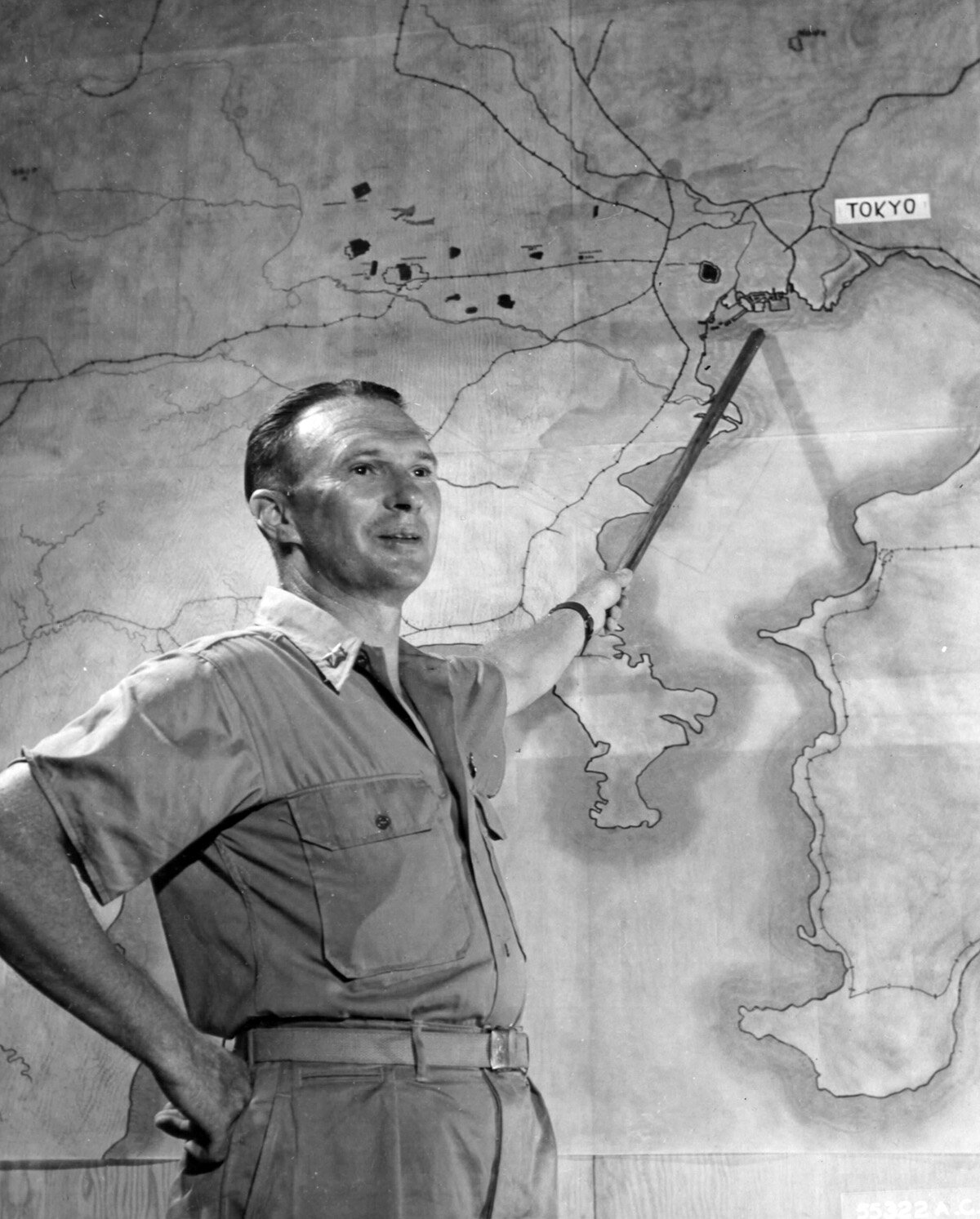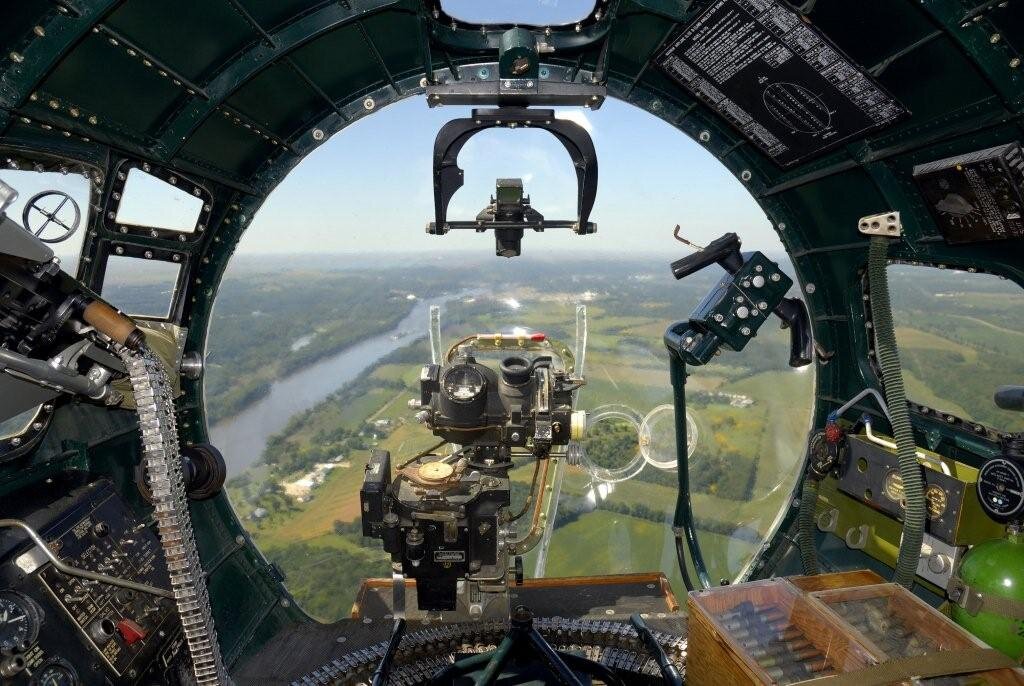The Strategic Bombing campaign of the Second World War is still one of the most controversial subjects of that conflict 80 years on. The destruction wrought upon hundreds of cities from Coventry to Tokyo brought the deaths of hundreds of thousands of people. The dream of commanders on all sides was a ‘precision strike’. A precision strike was the ability to identify a target and then destroy it with your bombers while causing the minimum of damage to the civilian population and getting in and out without losing too many aircraft and crew. To this dream, Malcolm Gladwell’s new book, The Bomber Mafia, looks at the titular group of US Army Air Force (USAAF) thinkers who believed that they had the tools at their disposal to bring high-altitude precision bombing to a realisation.
Haywood Hansell
Curtis LeMay
Gladwell’s book focuses mainly upon two great opposites of the Bomber Mafia’s world, the true believer in Haywood Hansell and the arch pragmatist in Curtis E. LeMay. From these two viewpoints, Gladwell takes a highly selective look at the bombing campaign and the tools at the disposal of the USAAF, specifically the Norden Bombsight, the B-17 Flying Fortress and B-29 Superfortress and Napalm.
A Norden Bombsight in the nose of a B-17 Flying Fortress
Gladwell’s book races through the development of the bombsight and the United States’ entry into the war and then sharply contrasts the USAAF’s approach to bombing with that of the RAF. According to this 250-odd page argument, Bomber Command’s doctrine of night time area bombing was one conjured out of the vindictiveness of its commanding officer, Arthur Harris, who, in a throwaway line, Gladwell denounces as “a psychopath”. No reasoning behind his diagnosis is offered beyond that Harris’ practised Area Bombing, so, therefore, he must be morally depraved.
And this is the crux of Gladwell’s book. By attacking a city and not a specific target within that city, you are, by his definition, immoral and therefore beyond redemption. Gladwell’s sources and interviews are used in such a way as to make you believe that the Norden bombsight and Boeing’s finest bombers would create the possibility of surgically cutting off the vital arteries to a city a reality. Gladwell’s laser focus on the group from Maxwell Field would make you believe that the Bomber Mafia were the prophets in the wilderness. They were not, not that Gladwell would help you to know that. There is no mention of Giulio Douhet’s “maximum bombing power”, nor Stanley Baldwin’s “the bomber will always get through”, not even Billy Mitchell, the Godfather of the US Air Force, gets a look in. For Gladwell, if it wasn’t the “enlightened” Bomber Mafia and their apostle Haywood Hansell, then it isn’t worth your consideration.
The distinction in this book between ‘area’ and ‘precision’ is set as a clear moral choice. The nuance and reality between the two are either lost on Gladwell, his researchers, or he just chooses not to grasp it. The book opens with Gladwell telling us that “this book is written to service his obsessions”, he is a Second World War obsessive, reads lots on the subject, and as such, he tells us, is in an excellent place to write this book. Or the audiobook that this is the script for, as his company is likely to rake in better royalties. For in championing the morality of the precision bombing mantra, Gladwell and what will undoubtedly be the many, many readers of this book, misses the cold hard reality of the two doctrines. The fact is that Arthur Harris, Gladwell’s bogeyman, didn’t throw his forces into area bombing because of pure malice. He did it because he had no choice.
Gladwell contrasts this choice when LeMay replaces Hansell for command of the bombing campaign against Japan. Hansell’s crews couldn’t hit their targets as they were now flying so high, the jetstreams were affecting their bombsights, which couldn’t cope with the winds (only passing mention is made of the inherent limitation of the Norden Bombsight). LeMay, the pragmatist, turns to his stores of the Demon Spawn of Harvard’s chemistry department, Naplam, and sends his bombers in low level and firestorms Tokyo. Gladwell chooses the imagery of Christ being tempted by the Devil in the wilderness to decide whether to area bomb or not. Hansell resists. LeMay does not. In Gladwell’s mind, Hansell is right.
Tokyo after the firestorm
When I wrote the first version of this review in my head in bed, it was full of pithy takedowns and poking at holes. It was hilarious. Then I realised that I was missing the point. Gladwell aims not to explain the realities of the insanely hard choices made by the commanders of the bomber forces on all sides. He wants you to look purely at the morality of to bomb or not to bomb. He closes the book with air force generals on a porch talking about how they can drop a bomb from a drone through a window and take out a guy. Gladwell heralds, admittedly with a moment of sorrow, that the Bomber Mafia’s dreams are our reality. By succumbing to the devil of oversimplification, Gladwell is pandering to the style of bitesize history that creates more harm than good. Mark Felton will love this book.
At no point in The Bomber Mafia is the evolution of air defences discussed. Nowhere is the opposing force mention beyond the mention of flak and the random fighter. This book holds the worst description of the Schweinfurt Raid I’ve ever read (it was all the weather’s fault, apparently). Gladwell’s myopic focus means that the reality of ‘precision bombing’ meant hitting the right neighbourhood on a perfect day (before late 1944), let alone the right factory, is never considered, let alone clear. That the Luftwaffe studied the composition of the raids that they faced and evolved their tactics constantly is not mentioned. The strategic situation that prompted Hansell to be replaced in the Pacific is not mentioned. Heck, the bloodbath that was the Marianas and Palau campaign that Gladwell’s beloved B-29s would operate from is not mentioned. The choice, Gladwell tells us, is simple. Harris and LeMay are wrong because they didn’t follow the precision mantra. Hansell should have been given more time because his final operation succeeded. If you are moral, so posits this argument, you’ll agree with Malcolm Gladwell and the dreamers of the Bomber Mafia.
I must say that this is, as is all Gladwell’s work, a very readable book. He does know how to form a sentence. But, The Bomber Mafia is written not to inform or allow you to develop your own conclusion but to champion his very selectively sourced polemic. When a source or a quote hints at the nuance of the choices faced at the strategic and operational levels, it is quickly forgotten and we are back to simply siding with the angels or the demons.
If you favour nuance, Gladwell will likely tar you with his psychopath brush. Having spent a reasonable amount of time thinking about this book and going back through my marginalia, I can state that I found The Bomber Mafia lacking in merit on just about every level.
The Bomber Mafia by Malcolm Gladwell is out now, published in the UK by Allen Lane and priced at an RRP of £20. If after reading the above, you still wish to wade through this book, might I suggest using the Bookshop.org link below. By using that link, 10% of each sale will go to support our great podcast History Hack. Malcolm will also get paid for writing this, so keep that in mind too.





Leave a Reply